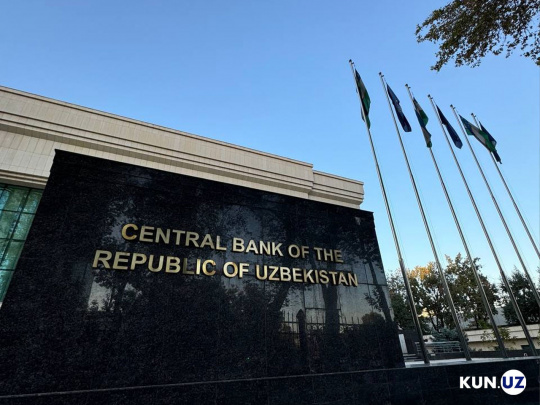Central Bank keeps key interest rate unchanged at 13.5%
The Board of the Central Bank of Uzbekistan decided during its January 23, 2025 meeting to keep the key interest rate unchanged at 13.5% per annum.

Photo: Central Bank
It was noted that while overall inflation has been declining in recent months, inflationary factors in the economy are emerging in diverse directions. Despite expectations that the impact of last year's liberalization of energy prices on inflation will diminish in the coming quarters, elevated inflation expectations necessitate maintaining relatively tight monetary conditions.
The decision aims to return core inflation indicators and inflation expectations to a stable downward trend and create sufficient conditions to achieve the medium-term inflation target of 5%.
Since October 2024, overall inflation has been on a downward trend, reaching 9.8% annually by December. This is viewed as an indication of growing price stability. By the end of 2024, price increases for three-quarters of goods and services in the consumer basket had slowed compared to 2023.
At the same time, core inflation slightly accelerated in December, rising to 7.2%. This was primarily driven by higher prices for services and non-food items, reflecting not only supply-side factors but also inflationary pressures stemming from increased aggregate demand.
Consumption and investment activity in the economy remained robust in 2023-2024. In particular, significant growth in wages and cross-border remittances contributed to an increase in real household incomes. Against the backdrop of strong economic activity, this is expected to sustain aggregate demand in the coming months, potentially exerting upward pressure on core inflation.
Inflation expectations among households and businesses rose in November-December 2024 due to seasonal supply factors.
The expected easing of these inflationary pressures, combined with relatively tight monetary conditions and sustained macroeconomic stability, should help reduce inflation expectations in the future.
According to updated forecasts, overall inflation is expected to be around 7-8% by the end of 2025.
Economic growth is projected to remain strong in 2025, with GDP growth estimated at around 6% for the year. Increased private investment is expected to support economic growth by boosting the supply of goods and services.
However, risks remain in global markets, particularly concerning potential price increases for certain food products, which could drive inflation upward through higher import costs in the coming quarters.
The next meeting of the Central Bank Board to review the key interest rate is scheduled for March 13, 2025.
Related News

19:32 / 12.03.2025
34 years of independence: The economic transformation of Central Asia

19:24 / 11.03.2025
Central Bank purchases $100 million in US bonds in February

19:42 / 07.03.2025
Tashkent plans to triple investment inflows to $10 billion

15:28 / 06.03.2025



